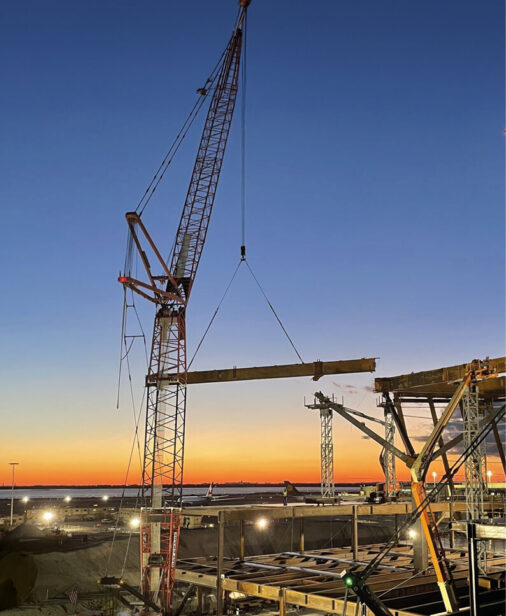-
Letter from the chairman
- In Two minutes
- Value Creation
- Ferrovial in 2023
- Corporate Governance
-
Appendix
- Alternative Performance Measures
- Sustainability management
- Reporting principles
- EU Taxonomy
- Task Force on Climate-Related Financial Disclosures (TCFD)
- ESG scoreboard
- Non-financial information and diversity reference table (Dutch Law)
- Contents of non-financial information statement (Spanish Law)
- SASB indicators
- GRI standards Indicators
- Appendix to GRI indicators
- Glosary of terms
- Board of Directors
- Assurance Report of the independent auditor
- Other information
- INDIVIDUAL FINANCIAL STATEMENTS
- AUDIT REPORT
Appendix
Sustainability management
Ferrovial understands sustainability and corporate responsibility (CR) as a voluntary but essential commitment to participate in the economic, social and environmental development of the communities where it operates. CR and sustainability policies are based on the principles of the Global Compact and related internationally accepted agreements and resolutions, inspired by the Sustainable Development Goals to consolidate the company’s position as a player that contributes to a more sustainable, innovative, inclusive and low-carbon economy. The Board of Directors is responsible for ensuring compliance with these principles, which the company has voluntarily assumed. Both policies are available at www.ferrovial.com.
The content of this Integrated Annual Report is in itself a Sustainability Policy report, which provides its stakeholders with detailed information on the policy’s support instruments to ensure its effective compliance. The sustainability strategy, formulated in the Sustainability Strategic Plan 2030, and specific sustainability and CR practices are mentioned in their corresponding sections.
COMMITTEE
The Sustainability Committee is chaired by the Sustainability Director and is composed of representatives from the business areas (Toll Roads, Airports, Energy and Construction) and the corporate areas (Human Resources, General Secretariat, Health, Safety and Wellbeing, Information Systems and Innovation, Communications and Corporate Social Responsibility, Strategy, Investor Relations, Compliance and Risks, and Construction Procurement). On an annual basis, the committee chairman reports to the Board of Directors.
The Sustainability Committee is the link between the business areas and the corporation and Senior Management, reporting on progress and results, and proposing actions to the Management Committee, as well as transmitting the approval of proposals and results to the rest of the company.
The main objective of this committee is to define the Strategic Sustainability Plan and ensure its follow-up. Its functions are summarized in the strategy section on page 28.
STRATEGIC PLAN
The Strategic Plan is the indispensable tool to ensure that sustainability is effective in fulfilling its mission and contributes to the development of the business, the generation of trust among its stakeholders and the fulfillment of its medium and long-term objectives.
The Sustainability Committee has promoted the Sustainability Strategy 2030 Plan, prepared taking into account the main global macro-trends, the regulatory and normative environment (United Nations Agenda 2030, Climate Change and the European Green Deal), the main economic-financial frameworks (Task Force on Climate-Related Disclosures (TCFD), Taxonomy and the European Next Generation Plan), social challenges (new urban agenda, new mobility habits, etc.), technological factors (energy transition and digitalization), environmental factors (climate change, water scarcity, loss of biodiversity and public health), ESG investor requirements, the main reporting frameworks (Global Reporting Initiative, SASB and the TCFD), as well as CSR trend reports from various prestigious institutions. In addition, Ferrovial has been recognized by AENOR as the first company to certify its Sustainability Strategy with the United Nations Sustainable Development Goals.
It has specific areas of action and objectives for each year and for the environmental, social and governance (ESG) areas. It is also aligned with the Horizon 24 business strategy and covers Ferrovial’s value chain, from customers to suppliers. Its objectives and monitoring are detailed in the strategy chapter.

